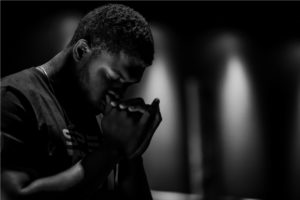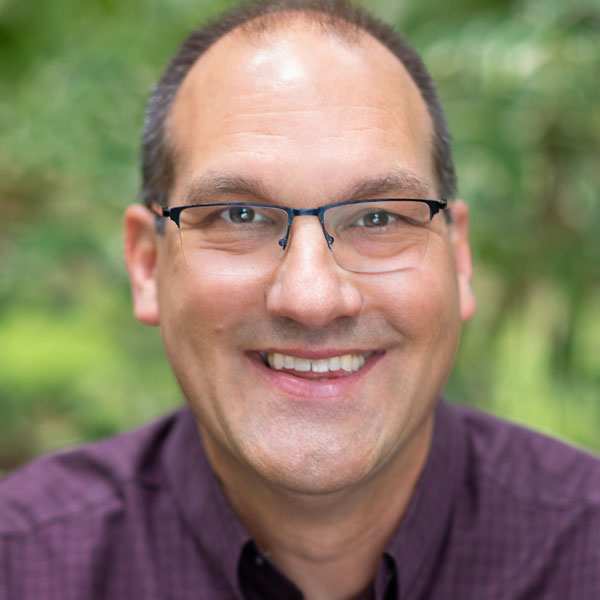Have you ever seen a basketball halftime show where this amazing lady balances plates on her head while riding a unicycle? It is the best halftime show ever. This lady is amazing. She should get paid more than the players. Do you ever feel like your life is like this performer – you are trying to stay upright without falling on your face but you’re balancing too many plates in the air?
 Stop for a moment and think about all the parts of your life you are currently balancing. Here is a partial list: pet care, home repair, Zoom classes, financial management, carpool, soccer practice, classroom volunteer, auto care, household chores, medical appointments, exercise, yard work, shopping, work meetings, school assignments, volunteering, church activities, childcare, caring for elderly relatives and if you have any time left, relationships and time alone with God.
Stop for a moment and think about all the parts of your life you are currently balancing. Here is a partial list: pet care, home repair, Zoom classes, financial management, carpool, soccer practice, classroom volunteer, auto care, household chores, medical appointments, exercise, yard work, shopping, work meetings, school assignments, volunteering, church activities, childcare, caring for elderly relatives and if you have any time left, relationships and time alone with God.
The myth of a balanced life means just adding one more plate to your already crazy busy life. Just one more plate. You can do it. You just have to multi-task better, sleep less, work faster, or become more efficient and organized – until you cannot do it anymore and then you crash.
A few summers ago, my wife and I read a life-changing book, The Jesus Life. It was written by Steven W. Smith, a Christian leader, who reached a point in his life where he had a physical and emotional breakdown. He was trying to balance too many plates. The Lord forced him to lie down in green pastures beside still waters (Psalm 23).
He spent a month in a monastery healing and learning from Dallas Willard how to live the Christian life. (When it comes to good self-care or better yet soul-care, Dallas Willard, former USC professor, author, and spiritual formation guru, is a mentor for many of us.) For Steven W. Smith, his breakdown was the best thing to ever happen to him. He got off the unicycle and stopped trying to keep all the plates in the air.
Most of us live like Steven W. Smith. We are overworked and overwhelmed. The work world will take as much as you can give and then some more! Most of us are hurried, stressed, weary, and unhealthy.
We have hurry sickness!
Dr. Archibald Hart is a licensed psychologist, psychopharmacologist, and for many years the dean of the School of Psychology at Fuller School of Psychology. In his book The Hidden Link Between Adrenalin and Stress, he explains stress is the body’s alarm system as it releases adrenalin into our system when we need it most.
However, when we are always in a hurry, always rushing around, always busy, trying to keep too many plates in the air, the adrenalin system gets overworked, and we become overly dependent on adrenalin in our system. With the overproduction of adrenaline, we are prone to addictions, illness, heart attack, hypertension, and many other health issues. The antidote – simply slowing down and letting our bodies rest – is easier said than done.
 John Mark Comer, a former mega-church pastor in Portland, Oregon, suffered burnout from over-preaching and over-leading a multi-site mega-church. Comer found wisdom in the teaching of Dallas Willard and his apprentice John Ortberg. Willard told Ortberg if you want to become the best version of yourself, “you must ruthlessly eliminate hurry from your life.”
John Mark Comer, a former mega-church pastor in Portland, Oregon, suffered burnout from over-preaching and over-leading a multi-site mega-church. Comer found wisdom in the teaching of Dallas Willard and his apprentice John Ortberg. Willard told Ortberg if you want to become the best version of yourself, “you must ruthlessly eliminate hurry from your life.”
In his book, The Ruthless Elimination of Hurry, Comer describes hurry sickness as “pathological busyness” and “a behavior pattern characterized by continual rushing and anxiousness” or “a malaise in which a person feels chronically short of time, and so tends to perform every task faster and to get flustered when encountering any kind of delay.”
He gives a ten-item checklist to assess our level of hurry sickness:
- Irritability – You get mad, frustrated, or annoyed, way too easily.
- Hypersensitivity – A minor comment hurts your feelings and ruins your day.
- Restlessness – When you try to slow down and rest, you can’t relax.
- Workaholism (non-stop activity) – You don’t know when to stop.
- Emotional numbness – You lack the capacity to feel another’s pain.
- Out-of-order priorities – You feel disconnected from your identity and calling.
- Lack of care for your body – You don’t have time for sleep, exercise, and good nutrition.
- Escapist behaviors – You turn to distractions (overeating, overdrinking, binge-watching, browsing social media, surfing the web, or looking at porn) instead of what is good for your soul.
- Slippage of spiritual disciplines – When you are busy life-giving things like quiet time, Scripture, prayer, Sabbath, worship on Sunday, a community meal, are the first things to go.
- Isolation – You feel disconnected from God, others, and your soul.
Let me guess, you checked off at least seven out of ten! Most of us struggle with hurry sickness.
What is the solution to hurry sickness?
The solution to hurry sickness is to slow down, let your mind and body rest, and practice self-care. It’s finding a rhythm in life where you work hard, play hard, but also rest well. Soul care or self-care involves caring for yourself so you can care for others.
This may sound out of place in the 21st Century but the best example I can find of a person who modeled the right rhythm of work and rest is Jesus. I would like to share three practices Jesus incorporated into his life and ministry that you can adopt into your life.
Find Quiet Places and Quiet Times
Although Jesus did not live with technology overload, the pace of life driven by constant change, or the complexity of multi-level corporations, the last three years of his life were intense. Once the crowds heard him proclaim Good News of God’s love and truth and witnessed him heal the sick, make people whole and provide free food by multiplying bread and fish, they followed him in great numbers.

He and his disciples were surrounded by crowds of people wherever they went, and it was difficult to find quiet times and quiet places to recuperate. Let’s also remember, Jesus and his followers were essentially camping for most of their ministry time.
He did not have the luxury of going home and locking the door. When he did visit homes, it was for ministry, with crowds often in and outside the dwelling. Jesus was so exhausted on one occasion he slept in the bottom of a boat during a storm. I’ve never been that tired.
It’s no wonder, Jesus regularly sought out quiet places to rest and recharge. In Luke’s Gospel Jesus withdrew to wilderness or desert places nine times. Luke 5:16 summarizes “Jesus often withdrew to lonely places and prayed.” Jesus sought quiet times early in the morning or late at night when the crowds and his disciples were sleeping. “Very early in the morning, while it was still dark, Jesus got up, left the house, and went off to a solitary place, where he prayed.” Mark 1:35
He invited his disciples to get away and get refreshed. They were also in the center of the action with crowds of people pressing in on them. “Then, because so many people were coming and going that they did not even have a chance to eat, he said to them, ‘Come with me by yourselves to a quiet place and get some rest.’” Mark 6:31
The busier you are, the more important it is for you to take strategic rest stops. A Formula One race car needs to visit pit row up to four times in a race to get new tires and make adjustments. Like a Formula One race car, if you don’t take strategic rest stops, your wheels might fall off!
Even though you may be extremely busy, you can schedule strategic rest stops in the middle of your day. You can block out appointments for you and God or for you and a nap. It’s your choice. It’s within your control. It’s a lifestyle change you can make. Hurry sickness is an illness we choose when we fail to adopt a rhythm of rest.
Make Time for Prayer Meditation
Jesus wasn’t getting away from the crowds just to rest. He was getting away to spend time in prayer and meditation with his heavenly Father. “One of those days Jesus went out to a mountainside to pray and spent the night praying to God.” (Luke 6:12).
When he climbed a mountain or went into the wilderness, it was to spend uninterrupted time with his Father. He got filled up with God before he poured himself out for others. His wilderness times with God were a regular part of his rhythm.
 When you live without prayer and meditation, you can become anxious or depressed more easily. You are also more likely to be short-tempered, impatient, and unkind. Prayer has a centering and calming effect. We tend to think of prayer as talking to God-worshipping, giving thanks, confessing sin, and praying for others. However, prayer also involves a posture of thinking and listening. One of my favorite verses says, “Be still and know that I am God” (Psalm 46:10).
When you live without prayer and meditation, you can become anxious or depressed more easily. You are also more likely to be short-tempered, impatient, and unkind. Prayer has a centering and calming effect. We tend to think of prayer as talking to God-worshipping, giving thanks, confessing sin, and praying for others. However, prayer also involves a posture of thinking and listening. One of my favorite verses says, “Be still and know that I am God” (Psalm 46:10).
Meditation is dwelling on God’s character, God’s Word, and God’s relationship with us. (Mindfulness is silence and solitude for a non-religious person.) During prayer and meditation, you replace the negative messages in your brain with positive affirmations from God. You get rid of the clutter and chaos of the world and replace it with clarity of mind and purpose. A well-ordered mind is a mind at rest.
In prayer, you can bring your fear and anxiety to God. As you trust God, you find rest for your soul. One prayer exercise that helps me to surrender and receive from God, is palms down and palms up. When my palms are down, I am releasing the stress and anxiety in my life to God in prayer. When I turn my palms up, I am surrendering to God and his plan for my life.
Palms down prayers sound like this “God I shake out my frustration, I release my anger, I drop my shame, I let go of my anxiety. I give it all to you.” Palms up prayers include statements like these, “God I submit to your authority, I surrender to your plan for my life, I choose to abide in you, I ask you to fill me with your joy and peace in the Holy Spirit.”
On the night Jesus was arrested, he was in an olive garden with his disciples in deep prayer. He was practicing his own palms up and palms down moment. In his humanity, he was struggling with the immense burden of dying for the “sins of the whole world” 1 John 2:2. Jesus brought his three closest friends with him to pray in the garden. There he shared his great sorrow with his Father and received the courage to face suffering and death.
“And taking with him Peter and the two sons of Zebedee, he began to be sorrowful and troubled. Then he said to them, ‘My soul is very sorrowful, even to death; remain here, and watch with me.’ And going a little farther he fell on his face and prayed, saying, ‘My Father, if it be possible, let this cup pass from me; nevertheless, not as I will, but as you will.’” Matthew 26:37-40
“Not my will but your will be done” is one of the most challenging prayers you can pray. In your own quiet olive garden, you can meet God. Away from the mad rush of the world, you can pray and feel his presence. Prayer and meditation can make a substantial difference for you in finding clarity and sanity.
I find journaling my prayers slows my mind down and allows me to do more listening. I will often write down what I want to say to God and then what I believe God is saying to me. His words to us will be in alignment with his words to us in the Bible.
Stop Rushing and Slow Down

If you are a multi-tasking super Mom or a fast-tracking business executive or a hyper-competitive student, stop rushing and slow down doesn’t sound like particularly good advice. The reason we keep all the balls in the air, or the plates stacked on top of our head, is to get ahead or at least to not ball behind.
As we have seen from the research from Dr. Richard A. Swenson, M.D. who wrote Margin, and Dr. Archibald Hart who wrote The Hidden Link between Adrenalin and Stress, there is immense value to our bodies when we stop rushing and slow down. There is also excellent value to our relationships.
Speeding Down the Freeway
You can tell a lot about a person by their driving habits. How often do you drive in the slow lane? How often do you drive the speed limit? How often do you practice a California rolling stop? How often are you running late and speeding? How often do you look at your GPS and say, “I can shave off a couple of minutes if I fly down the freeway.” Your driving habits reflect your life habits.
 Most of us leave no room for margin in our lives and we attempt to juggle too many balls in the air. We try to make time up by speeding from activity to activity. If you want to get serious about a cure for hurry sickness, leave early, drive the speed limit, come to complete stops, enjoy great music, a podcast, or some silence while you drive. You will arrive at your destination without anxiety and an adrenal overload. You will be able to enjoy the people at your destination in a stress-free state.
Most of us leave no room for margin in our lives and we attempt to juggle too many balls in the air. We try to make time up by speeding from activity to activity. If you want to get serious about a cure for hurry sickness, leave early, drive the speed limit, come to complete stops, enjoy great music, a podcast, or some silence while you drive. You will arrive at your destination without anxiety and an adrenal overload. You will be able to enjoy the people at your destination in a stress-free state.
Rushing Through Mealtimes
Have you seen the newest refrigerator models? The vegetable drawers are small, and the freezer is gigantic. Americans are buying more ready-made frozen dinners to microwave or speed cook in the Instant Pot rather than taking the time to cook a meal on the stove. We are also eating on the go. Family mealtimes are less common in most busy homes. Many of our favorite food items don’t even involve chewing, we slurp down our food.
We had a Russian exchange student living with our family for a year. He often complained we didn’t spend enough time talking after dinner. We were rushing off to practice, evening meetings, the gym, or shopping. He loved to sip his tea and debate politics, talk about world events, and share personal stories at dinner. He taught us how much we were missing by rushing off to the next event.
Announce to the family you have planned a family meal. Chew your food carefully, ask good questions, enjoy meaningful conversation, and you will find mealtimes are your favorite times.
Jesus was never in a hurry
Even though the crowds followed Jesus, he had an amazing knack for focusing on individuals. He walked wherever he went and often had significant ministry events or teaching moments on his way to a destination. One of my favorite accounts is in Mark 5:25-34. Jairus, the synagogue leader, an important personin the community, pleaded with Jesus to heal his daughter. The crowd, the disciples, Jairus, his entourage, and Jesus were pressing forward in a state of urgency.
Suddenly, a desperate woman, who had been bleeding for twelve years and had spent all her income on doctors, secretly approached Jesus and touched the hem of his robe. Jesus knew healing power had emanated from him and he stopped the whole procession and asked a dumb question, “Who touched me?” His disciples complained, “You see the people crowded against you, and yet you ask, ‘Who touched me?’”
Jesus waited until the frightened woman came forward and shared what had happened. Jesus comforted her and said, “Daughter, your faith has healed you. Go in peace and be freed from your suffering.” While the procession was stopped, terrible news arrived. Jairus’ daughter had died. Jesus went on to raise Jairus’ daughter from the dead. Now, however, it seemed like his slowness and his insistence on meeting the woman was an ill-timed decision.
Jesus never seemed to be in a hurry. Even though he felt the weightiness of his mission, he had time for the least, the lost and the less. When we have margin built into our lives, and the patience to handle interruptions, good things happen.
Some of the best conversations I have with my kids are when the conversations were not on my agenda for the day. If you have had your quiet time in a quiet place, it’s easier to allow for interruptions later in the day. When we rush, we can miss divine opportunities.
If you want to cure your hurry sickness, enjoy quiet time in quiet places, talk to God and meditate on Scripture. Create margin in your life and intentionally slow down you can see make the most of your relationships and notice Divine opportunities when God presents them to you.
Do you need permission to rest? Jesus invited you to rest in him.
“Are you tired? Worn out? Burned out on religion? Come to me. Get away with me and you’ll recover your life. I’ll show you how to take a real rest. Walk with me and work with me – watch how I do it. Learned the unforced rhythms of grace. I won’t lay anything heavy or ill-fitting on you. Keep company with me and you’ll learn to live freely and lightly” (Matthew 11:28-30, The Message Bible).
This article is the second in a three-part series on practicing good self-care. In Part 1 of Good Self-Care, I examined the importance of taking care of the whole self – body, mind/heart/soul (the inner life), social life (relationships), sexual life, and spiritual life (relationship with God).
In Part 2, I addressed the problem of hurry sickness and looked at ancient Biblical practices to remedy modern stress. In Part 3, I will focus on Jesus’ invitation to enjoy Sabbath as a prescription for peace and wholeness.
Christian Counseling for Self-Care
If you would like help in choosing good self-care, reach out to me or any of the other therapists at Seattle Christian Counseling, and we will help you discover a rhythm of rest.
“Juggler”, Courtesy of Alexey Turenkov, Unsplash.com, CC0 License; “Under Pressure”, Courtesy of Jeshoots.com, Unsplash.com, CC0 License; “Praying Man”, Courtesy of Jack Sharp, Unsplash.com, CC0 License; “Watching the Sun Set”, Courtesy of Kelli McClintock, Unsplash.com”Woman in Hammock With Bible”, Courtesy of Priscilla Du Preez, Unsplash.com, CC0 License; “Pit Crew”, Courtesy of Darren Nunis, Unsplash.com, CC0 License






